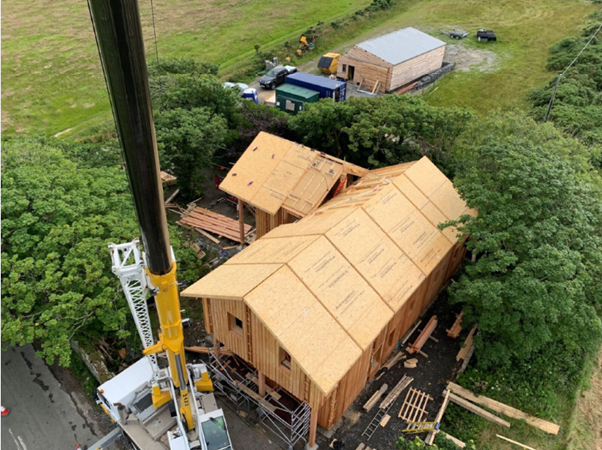Housing associations are being urged to step out of their traditional role to deliver change in deprived areas and help people into work or entrepreneurship.
The call comes in a whitepaper published by the University of East Anglia (UEA), written in response to how the UK levelling up policy agenda has so far failed to deliver results for constituents in the communities it is designed to help.
It follows a £10.8M Increase Valorisation Sociale (INCREASE VS) project, which showed how housing associations can go beyond their primary role of providing affordable housing to become crucial labour market intermediaries, helping communities and their residents get back into either employment or entrepreneurship, offering social facilities, and micro-enterprise training.
Running from 2018-2023, the initiative involved housing associations across a range of communities in England and France, as they attempted to help residents furthest from the labour market.
The whitepaper is based on results of a study conducted as part of the project by UEA and aims to help other housing association leaders who wish to increase their role.

Zografia Bika, Professor of Entrepreneurship at UEA’s Norwich Business School and lead of the study and whitepaper, said: “The challenges presented by regional inequality in the UK have been thrust into the limelight since the Brexit referendum.
“While many efforts made as part of the government's levelling up proposals have been centrally designed and administered, the INCREASE VS project highlighted the key role housing associations can play in delivering meaningful change that is crafted by locals according to local needs and conditions.
“The success of the housing associations in supporting individuals back into work or self-employment was in a large part because of their respected role in the community and the extensive knowledge and understanding of local circumstances that this afforded them. The results provide clear evidence that housing associations can do more than provide housing.
“These kinds of localised interventions are crucial if the levelling up ambitions of the country are to be realised, but doing so requires that housing associations step out of their traditional role as ‘just’ a respected provider of housing and instead act as the point around which a wide range of services are provided to help residents get back on their feet.”
INCREASE VS helped more than 4,500 people as they either started their own business or returned to work, its success driven largely by the individualised nature of the interventions that were designed to reflect the unique needs of each community.
It prioritised micro-enterprise training and employment support services (MEESS) tailored to each participant, such as guidance in business development, financial management, and administrative processes, and the context of their local environment.
“There is an opportunity for other housing associations and stakeholders in the sector to explore similar collaborative place-based initiatives and enact their change making role,” said co-author Adi Gaskell, who worked on the UEA study and currently advises the European Institute of Innovation and Technology.
“By leveraging their collective knowledge and resources, they can develop integrated micro-enterprise and employment support services that empower individuals, enhance social inclusion, and contribute to the overall well-being of communities.”
Prof Bika and Mr Gaskell add that while INCREASE VS highlighted the “tremendous potential” for locally-driven change, applying the approach required to achieve the same results to housing associations elsewhere would not be easy.
“As the social and economic landscapes continue to evolve amidst increasing regional inequalities, housing associations must adapt to new challenges and opportunities,” said Prof Bika. “While there are a number of potential changes they may need to consider, they promise to deliver tangible benefits, including enhanced housing quality, cost efficiency, and resident wellbeing, while also stimulating job creation, addressing labour shortages and attracting residents and investors.”
The whitepaper highlights the importance of social inclusion and empowerment, and the power of collaborative networks and partnerships within the housing sector, for example between housing associations, training providers and other stakeholders, which enables the pooling of resources, knowledge, and expertise.
It recommends embracing sustainability, for example through sustainable construction and use of energy-efficient technology, as well as bringing integrated MEESS in-house, supporting skills-based recruitment and working with community colleges.
Incorporating technology into housing associations' operations and partnering with technology service providers can also foster digital inclusion and sustainability, while ensuring affordable and reliable internet access for residents.
Prof Bika added: “Change is neither easy nor guaranteed to succeed, but the roadmap outlined in this whitepaper gives housing association leaders the direction they need to become true institutional pillars of their local communities, supporting individuals in their pursuit of entrepreneurship or employment over the long term and enabling them to make and sustain meaningful change in their lives, where they live.”




















